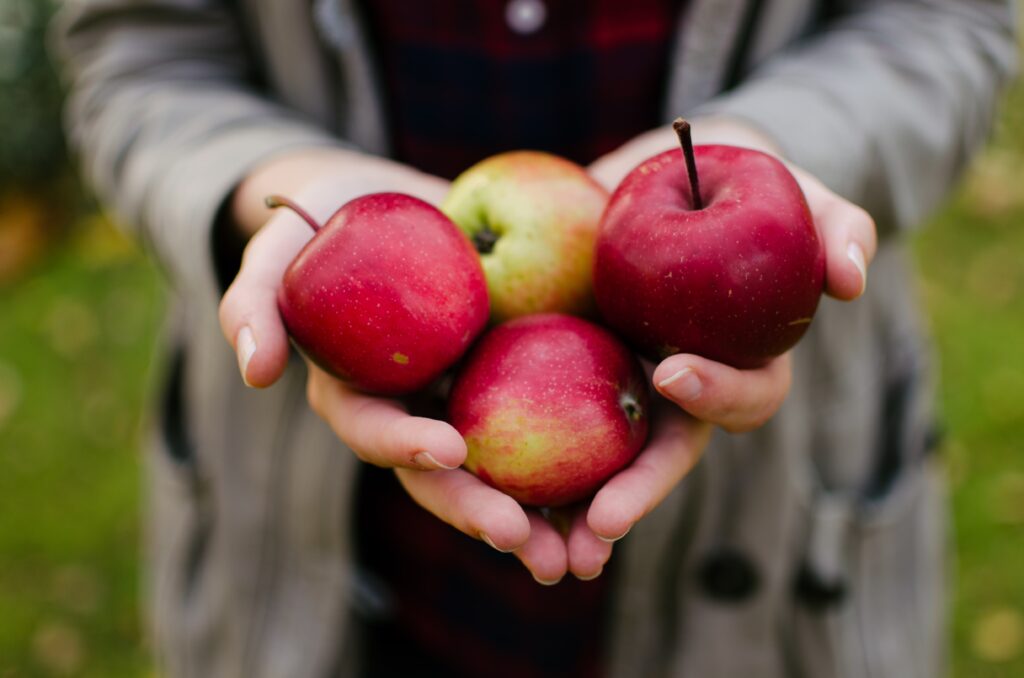All of us are familiar with the expression: “An apple a day keeps the doctor away.”
While the positive effects of eating fruits are generally understood and acknowledged, is it really true that an apple a day keeps the doctor away, or is it a myth?
Well, the term was initially introduced in the year 1913. It was centered on a proverb from Pembrokeshire, which emerged in the year 1866. In particular, the actual statement was first published in a journal called Notes and Queries: “Eat an apple when you go to bed, and you will keep the doctor from earning his bread.”
For a long time, research findings have shown us that diets that are high in fresh substances may reduce the likelihood of numerous chronic illnesses. More comprehensive research, however, suggests that apples can be especially beneficial for good health.
In a report published in JAMA Internal Medicine, researchers conducted a study on 8400 people. Out of those 8400 people, 753 people ate an apple every day. The report concluded that there is no proof of whether eating an apple a day keeps the doctor away; however, few medications are prescribed to those US adults that eat an apple each day.
Research shows that consuming more apples may not be correlated with decreased visits to the hospital, and adding apples to our menu may actually boost many facets of our body and health. Apples are filled with fiber, antioxidants, vitamins, minerals, and nutrients. To eliminate dangerous compounds recognized as free radicals, vitamin C serves as an antioxidant and safeguards against viral infections.

Apples contain soluble fiber, which can effectively decrease the rate of cholesterol and blood pressure. One analysis of over 20,000 people published in PubMed Central showed that reduced stroke risk was associated with eating more quantities of white-fleshed vegetables and fruits, particularly apples.
According to cancer studies published in PubMed Central, eating more apples was linked to a reduced possibility of getting lung cancer. Similar results were found by other studies, indicating that consuming apples was related to a reduced likelihood of developing colorectal cancer. Other evidence demonstrates that a fruit and vegetable-rich diet might safeguard against esophagus, stomach, and oral cavity cancer.
Other health benefits of apples include reduced risk of diabetes, improved bone health, and mental function. Note that much of the apples’ nutritional benefits tend to come from the skin, so the abundant amounts of antioxidants that the entire apple provides are missing in applesauce and peeled apples.
Like other fruits, apples alone are not able to keep us healthy, and we can’t expect apples to undo previous harm induced by improper dietary habits. Salt, sugar, and trans-fat-rich diets, even with an apple a day, do not contribute to improved health. Daily intake of apples, of course, is only useful as part of a balanced lifestyle and regular exercise.
For a balanced, reduced-fat, and calorie snack, apples are indeed a nice option. They are full of antioxidants and fiber, all of which can be beneficial against a range of serious illnesses. Consuming the entire fruit, along with the skin, is advised in order to get the full nutritional benefits from apples.
Remember, apples are not a substitution for a healthy lifestyle. And, there isn’t really a guarantee. People who are living exquisite lives nevertheless experience severe chronic diseases, including heart problems and cancer, and it is hard to access medical services if we hold the doctor away fully.
Visiting the doctor frequently will make it easier for him to discover situations that may threaten your health in the coming years, even if you feel completely alright whilst chewing on that red, tasty fruit.
Also Read: IT’S NOT A DIET; IT IS A LIFESTYLE- HEART-TO-HEART WITH FAREEHA JAY

Fizza Kazim is a final year Bachelor’s student in Psychology at COMSATS University, Islamabad. An enthusiastic writer and anime painter, she has strongly dedicated herself to bringing mental health awareness and has participated in numerous mental health and illness programs. She has also worked for multiple organizations to promote psychological issues.

